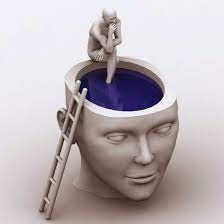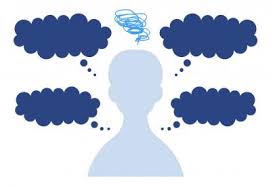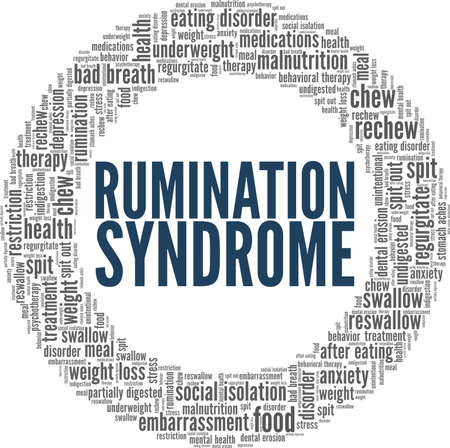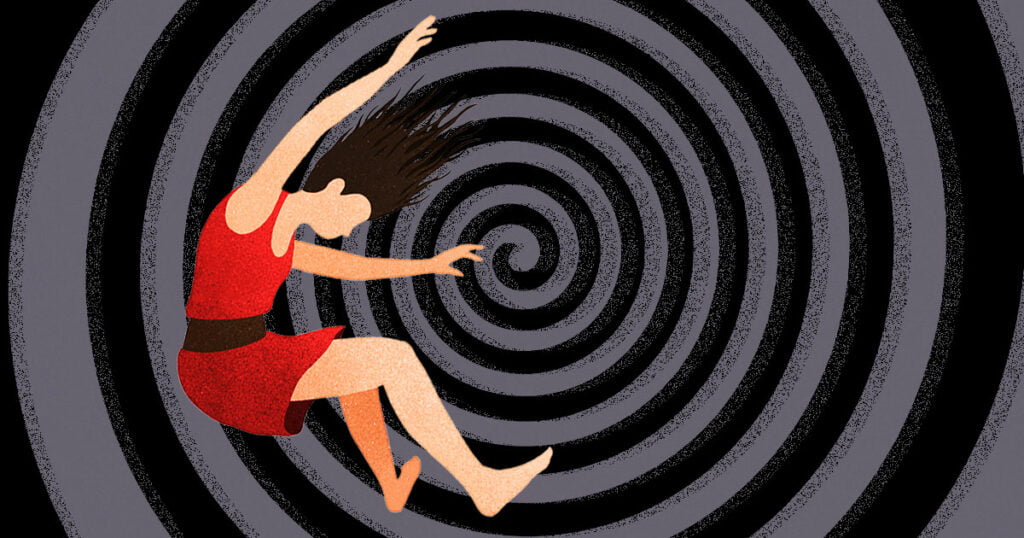“So what is rumination therapy”? I hear you ask. Well, it’s a form of psychotherapy that helps people deal with stress by intentionally creating mental discomfort. It sounds counterintuitive, right? But the idea behind the process is to activate unpleasant thoughts in order to get past them and move on. Rumination therapy might be just what you need if your stress levels are through the roof!
Contents
A Detailed Note On Rumination Therapy

We can’t control what happens to us, but we can control how we think. In fact, research has shown again and again that our thoughts are a powerful determinant of our behavior and emotions. If you’re having a bad day, it is probably because you think about the situation in an unhelpful way. Maybe you keep thinking about the bad things that happened. Maybe you think they will get worse. In any case, a rumination is a form of mental behavior that can make us feel like we have no control over anything.
In order to help people deal with stress, psychologists developed a technique called “rumination therapy”. Basically, this involves making deliberate use of negative thoughts. It sounds weird, but here’s why it works. When we let our minds wander to both good and bad thoughts, then there is no order. This means that they can go on and off like radio waves with no real consequences. However, when we deliberately activate negative thoughts through rumination therapy, it forces the mind into order. This means that it has to assess what is important about those thoughts before moving on to something else.
Symptoms Of Rumination

There are many symptoms of rumination, some of which are:
- Depression symptoms: depressed mood, loss of interest in activities that were once pleasurable to you.
- Anxiety symptoms: restlessness, easy startle response, and a sense of dread or doom about the future.
- Physical symptoms: difficulty concentrating, insomnia, and trouble with appetite.
Other names for rumination include brooding and reflection depression. Some people feel sad for a long time after something bad happens to them. This isn’t the same as remembering good things that happened, because it’s more about remembering negative emotions. When this happens too much, it can lead to clinical depression. When people cannot see a way to improve their situation, they often feel helpless. This leads to anxiety disorder effects such as worrying excessively throughout each day. The mental discomfort of rumination can manifest in physical symptoms such as nausea, dry mouth, and dizziness.
Causes of Rumination
Rumination syndrome is when you have an anxiety disorder that causes you to think about the same thing over and over. The cause of this disorder is unknown, but it seems to have a link with higher abdominal pressure.
Rumination is a problem. People think it’s the same as bulimia, GERD, or gastroparesis. But rumination can happen when there is not enough coordination of muscles in the pelvic floor.
The condition happens in babies and people with developmental disabilities. But now, it is clear that it can happen to children, teens, and adults. The condition is more likely to happen in people who are anxious or depressed or have other psychiatric disorders.
Diagnosis Of Rumination
In the context of rumination or worry, a person inclines to focus on negative aspects in their life over and over again. For some people who tend to be especially introspective, this behavior can persist for hours at a time leading up to an episode of depression that may follow soon after. These are just some reasons why you should consider getting help for rumination.
- Esophagogastroduodenoscopy: This is a procedure that allows the doctor to look at your stomach and duodenum (beginning of small intestine) with an endoscope. This test is necessary if you have trouble swallowing, heartburn, or indigestion which doesn’t go away after treatment, unexplained weight loss, unintentional weight gain, abdominal pain, nausea/vomiting blood, or black stools.
- Gastric emptying: A test is important if you have symptoms of slow stomach emptying. You might feel full even though you just ate a small meal, belch, or have gas pains. Or maybe you feel sick to your stomach right after eating (early satiety). In many cases, people who have symptoms of slow stomach emptying unintentional weight loss.
In order to receive the best results from your tests, it’s important for those who are being tested not to eat anything solid within 12 hours prior to their appointments. This includes chewing gum! The only liquids allowed should be water in very small quantities at least 30 min before testing is scheduled. Please check with our office regarding any medications which might influence the accuracy of these procedures. We will provide more information about each of these tests in the next weeks.
Treatment
In a majority of cases, rumination is not treated with medication. Sometimes, when a person has a ruminating personality type and also has depression or anxiety, a doctor may prescribe medicine to help. Other types of medicine, such as anti-anxiety drugs and anti-depressants can help people’s moods. They can also reduce worry, repetitive thinking, and fixation on negative thoughts. One type of medicine that helps with both depression and ruminative behaviors is Mirtazapine (Remeron). It makes people feel better and less tired.
Treatment methods are Cognitive behavior therapy (CBT), psychotherapy, counseling, or support groups.
Cognitive behavior therapy (CBT)
Cognitive behavior therapy (CBT) is a type of treatment that helps patients understand how their thoughts, feelings, and behaviors are related. It’s often used to treat depression, anxiety disorders, eating disorders, personality issues/disorders along with other mental health problems. The most important part about CBT for rumination is by changing the way you think & behave through exposure-based treatments which allows your mind to develop new habits in learning how it reacts when exposed to certain stimuli or situations.
Psychotherapy
A form of psychodynamic treatment where an individual meets weekly with his/her therapist who assists him/her in exploring patterns within themselves by encouraging them to communicate their experiences more deeply while also helping them find solutions that will help resolve any conflicts within their personality or behavior.
Counseling
Talk therapy is helpful for the treatment of stress, anxiety, relationship issues/conflicts, and depression. It can also help patients who need support find ways to cope with feelings associated with various mental health problems along with other sources of emotional distress in their lives.
Support Groups
Meetings are held by people who share similar experiences related to a specific condition such as post-traumatic stress disorder (PTSD), cancer, diabetes, etc… Patients are provided an opportunity to express themselves while learning from others’ experiences that may prove useful in managing symptoms & adjusting more positively within their environment. Support groups offer participants the chance to receive information about new treatments & medications available on the market. They can also offer insights into how certain lifestyle changes might be beneficial in the management of their condition.
Support groups are generally run by an individual who has personal experience or training within a specific illness/condition. The leader may have been personally affected themselves, which helps them provide insight to others who need guidance & support during treatment & recovery. At times, they may even invite doctors, researchers, or mental health professionals to come to share with patients about new treatments available on the market!
Goal Of Treatment
The goal of Rumination Therapy is to prevent these mental manifestations by using a combination of self-reflection and therapy sessions with experts that help you overcome the negative feelings associated with your experience; eventually leading to positive emotions that promote growth instead. The core focus during this process should be identifying what triggers any type of emotional response so it can be avoided or handled better if necessary. This means avoiding thoughts that bring on stress because they are likely related to other areas in life where improvement has not been made yet. Another key element for success is finding ways to break out of the cycle when you find yourself brooding over something repeatedly without knowing how else to resolve the issue.
The purpose of Rumination Therapy is to help you learn how to deal with your feelings or emotions in a way that doesn’t involve harmful behaviors such as alcohol & substance abuse, indiscriminate sexual activity, etc… which only makes things worse for yourself and those around you. People who have rumination often struggle with depression, anxiety disorders, and personality problems because of these mental health conditions. They feel overwhelmed by their own thoughts and emotions without knowing how to cope with them!
Complications of Rumination

When rumination becomes a problem, it is important to understand the condition and its treatment. It is hard for some people because they are used to thinking negatively. They can’t think of other ways to deal with stress. This means having difficulty handling anything without going back over what has happened previously & considering all possible outcomes that could be bad. This type of behavior can cause people to isolate themselves & withdraw from society because they fear whatever happens next might not turn out well! They may act in ways that are self-destructive, which only makes things worse for everyone involved!
Rumination is an illness when it becomes so bad that it affects your ability to do things. If these thoughts do not go away & continue causing distress, it may be necessary for a mental health professional to provide support through psychotherapy and medications that can help the sufferer manage their symptoms better!
Who should not take Rumination Therapy?
Ruminative therapy should not be used on people who are currently psychotic or have any form of delusional disorder. People who are at high risk for suicide should not take Rumination Therapy while the risk is present. Young people require special attention because they are naturally inclined to engage in ruminating behavior due to their hormones and the contours of their brains (just like when they are in puberty when sex is on their minds).
- People with borderline personality disorder should not do Rumination Therapy.
- People who have eating disorders such as bulimia and anorexia should not engage in this therapy either because it will likely exacerbate the problem.
- Post-traumatic stress disorder (PTSD) sufferers should not engage in rumination therapy either because it will likely exacerbate their symptoms.
- People who are obsessive-compulsive, people with ADHD and OCD, obsessive compulsive disorder (OCD), post-traumatic stress disorder (PTSD), or borderline personality disorder should avoid this therapy for the reasons stated above.
The fact that rumination can be a symptom of a wide array of mental disorders does not mean that all people suffering from those disorders should avoid this therapy.
Conclusion
The way we think has a huge impact on how we feel and what we do. If you’re feeling stuck in a rut, thinking about your thoughts can help get you out of it. Ruminations are the repetitive thoughts that keep going around in our heads without us being able to stop them. They usually come from unresolved issues or regrets from past experiences which make us sadder when they pop up again and again. It is important not to feed these negative emotions by giving into rumination.
For more information, please contact MantraCare. Anxiety is a common mental health condition characterized by persistent feelings of worry, fear, and apprehension. If you have any queries regarding Online Anxiety Counseling experienced therapists at MantraCare can help: Book a trial Anxiety therapy session


